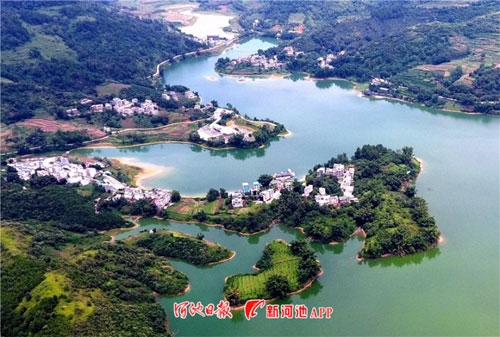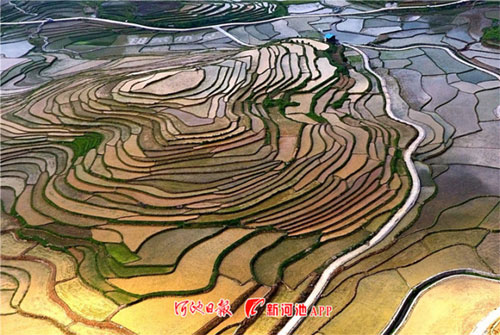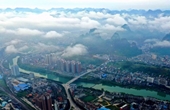Beautiful Hechi: A land rich in longevity and environmental beauty
By (chinadaily.com.cn)
2020-03-18
Hechi in South China's Guangxi Zhuang autonomous region is a city inhabited by multiple ethnic groups, as well as boasts beautiful natural scenery and rich ethnic culture. It was China's first prefecture-level city to be rated as a "World Longevity City" in 2016.
The city was home to 4.34 million people by the end of 2019. There are nearly 647,000 people over 60 years old in the city, accounting for 16.3 percent of its total population, as well as 104,000 people over 80 and 900 centenarians.
It has a long history of longevity. The earliest recorded centenarian in the city can be traced back to the reign of Emperor Jiaqing (1796-1820) of the Qing Dynasty (1644-1911), and was a 142-year-old man of the Yao ethnic group named Lan Xiang.
 |
|
The magnificent view of islands dotting Cifu (Blessing) Lake in Bama Yao autonomous county of Hechi. [Photo/Hechi Daily] |
The city has also formulated several action plans for the prevention and control of air, water, and soil pollution, insisting on the green development.
In 2019, the days with excellent or good air quality in the city's downtown areas accounted for 97.8 percent of the whole year, up 3.31 percentage points from 2018 and ranking first in Guangxi.
The water quality of important river and lake functional areas in the city reached the standard rate of 100 percent, the same as that of drinking water sources in the downtown areas.
 |
|
The terrace fields in Nandan county of Hechi, Guangxi Zhuang autonomous region. [Photo/Hechi Daily] |
In recent years, Hechi has been promoting the development of the modern tourism industry centered on its rich longevity and ethnic culture, as well as its splendid natural scenery.
To date, there are 44 national A-level scenic areas in Hechi, including 20 4A-level ones, as well as 54 starred hotels, 34 travel agencies, and 44 starred rural tourism areas.
The city received a total of 45.06 million tourists both from home and abroad in 2019, an increase of 31.66 percent from the previous year, and had a total tourism consumption of 55.29 billion yuan ($7.87 billion), up 34.53 percent year-on-year.




